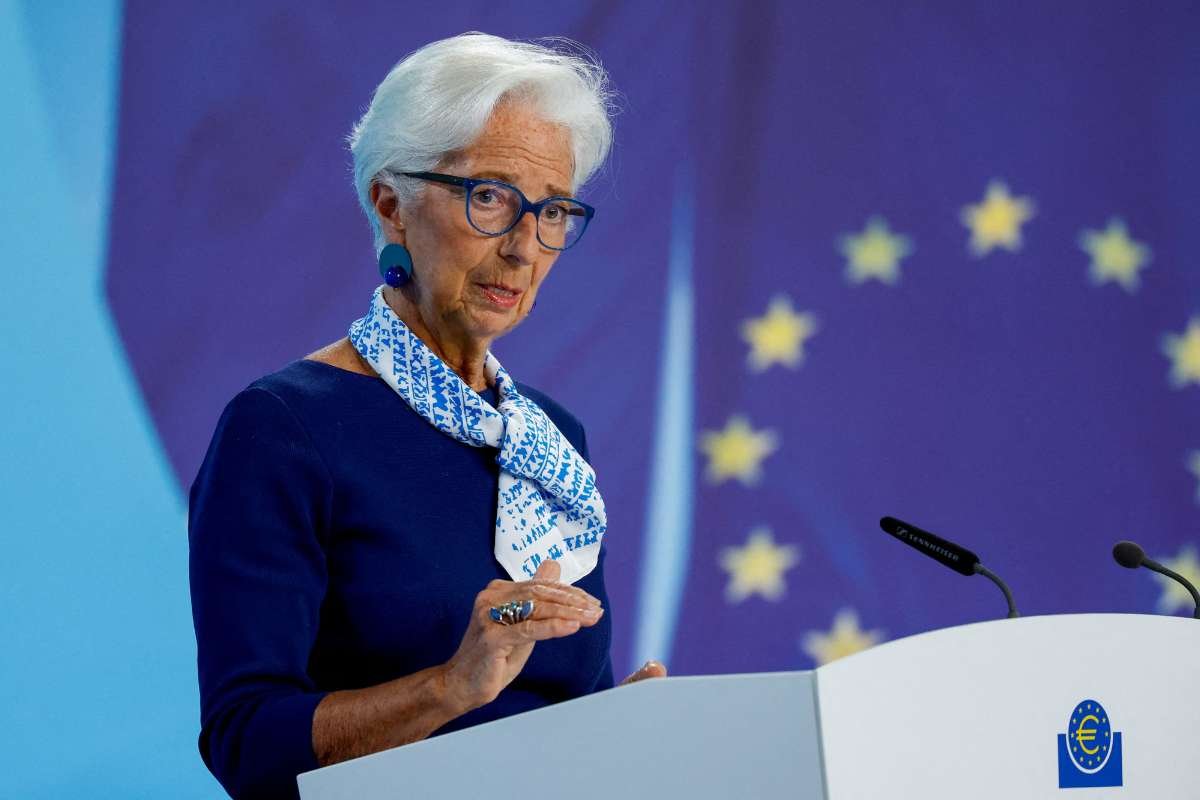Key Points:
- Christine Lagarde says the Eurozone stays resilient despite US trade tensions.
- Growth is weak at 0.1%, and risks of future shocks remain.
- ECB keeps rates steady but ready to act if needed.
The eurozone economy has managed to stay more resilient than many had predicted despite recent trade tensions and new tariff measures from the United States. European Central Bank (ECB) President Christine Lagarde highlighted that the region avoided a more severe downturn thanks to a restrained approach, with European authorities choosing not to escalate matters through retaliatory tariffs. This move helped prevent a damaging cycle of protectionist measures that could have further destabilised trade relations.
Lagarde explained that the July trade agreement, which limited additional tariffs to 15 %, was a key factor in minimising uncertainty and shielding investment. She also noted that the strength of the euro played a role in offsetting cost pressures by making imports cheaper. As a result, inflationary effects remained relatively subdued, and supply chains were spared from major disruptions.
Still, growth figures underline the fragile nature of the recovery. The eurozone’s gross domestic product expanded by just 0.1 % in the second quarter, with analysts projecting that tariffs could still shave nearly a full percentage point off growth across the next two years. While the immediate impact has been softened, the economic outlook remains cautious.
ECB’s Policy Balancing Act
Christine Lagarde reaffirmed that the ECB’s current policy stance is appropriate for present conditions, with the key interest rate held at 2 %. However, she stressed that this should not be seen as a fixed course. Instead, the central bank intends to remain flexible, ready to respond to shifting economic circumstances and potential risks.
She underlined that inflation risks are currently contained but admitted that global uncertainties make the situation unpredictable. Faster and more frequent price adjustments by businesses, a feature of today’s economy, could magnify the impact of even smaller disturbances. Lagarde urged vigilance and noted that the central bank would not hesitate to intervene if price stability came under threat.
Other voices within the ECB leadership have also called for proactive steps to strengthen the euro’s role on the global stage. Policymakers see the currency not only as a monetary tool but also as an anchor of stability in a more volatile international environment.
Warning of Future Shocks
While emphasising resilience, Christine Lagarde issued a sober warning that the eurozone cannot afford complacency. She acknowledged that further shocks could emerge, whether from geopolitical tensions, shifts in global trade, or unexpected disruptions in energy markets and supply chains.
One of her central concerns is the rising volatility of inflation, which has become harder to predict as firms react more quickly to changes in costs and supply conditions. In such a climate, even limited external shocks could spark disproportionate effects on prices and growth.
Christine Lagarde concluded by stressing that the ECB remains prepared to act decisively if circumstances demand. The central bank’s mission, she said, is not only to support growth but also to safeguard price stability in an era of increasing global uncertainty.
Visit more of our news! CIO Women Magazine









